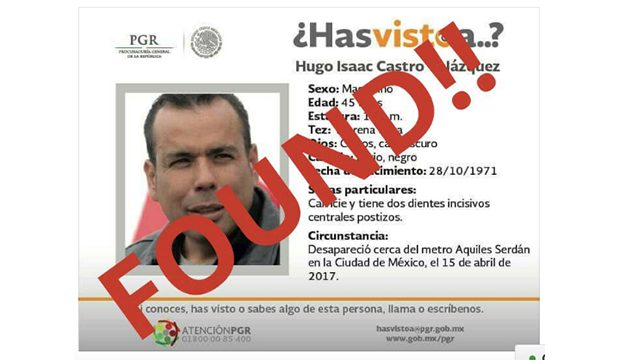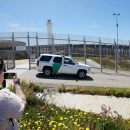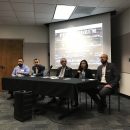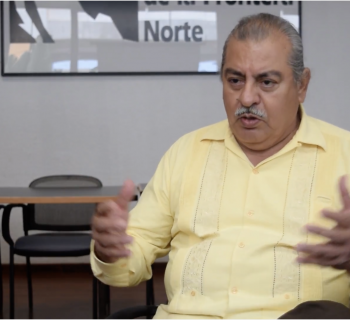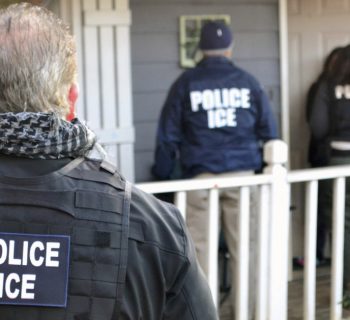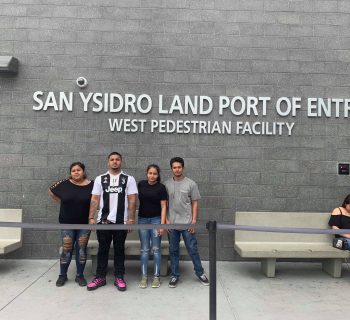Stranded on the shoulder of a busy highway in a crime-ridden area of Mexico, Hugo Castro took to Facebook Live to broadcast a desperate call for help.
Castro, a U.S. citizen and migrant rights activist who has worked in San Diego, Tijuana and other border communities, said he had run out of Mexican pesos and was unable to pay for a taxi or bus with U.S. dollars. He claimed he was being followed by a criminal organization for the past several days, and he feared for his life. On Thursday evening, the group cornered him on the road to Puebla, Mexico, about 66 miles southeast of the capital.
“It’s like they’re hunting me,” Castro, 45, told those watching on Facebook Live, describing his location by pointing out the nearby gas station and metal arch. “Please, someone come here.”
There was no way of immediately verifying Castro’s claims. But after that 20-minute harrowing message, no one heard from Castro for days. His family had reported him missing a day earlier. The ensuing disappearance of Castro, a longtime volunteer with Border Angels, an immigrant rights advocacy group, prompted searches by authorities in the United States and Mexico, spurred weekend vigils in San Diego and heightened concerns about the growing number of people missing under suspicious circumstances in Mexico.
But on Tuesday, after nearly a week missing, Castro was reportedly located alive in Mexico. The activist is hospitalized and in “stable” condition after being treated for wounds tied to an apparent kidnapping, Mexico’s attorney general said Tuesday, according to KPBS, a public broadcaster in San Diego.
He was found on a street called Avenida San Rafael in Tlalnepantla de Baz, a city north of Mexico City, after the office of the special prosecutor for disappeared persons received an anonymous phone call describing his location. The attorney general’s office said it has since launched an investigation into “the illegal deprivation of freedom” of Castro, KPBS reported.
His condition is “delicate,” Gabriela “Gaba” Cortes, Castro’s partner, wrote on Facebook Tuesday night, adding that the authorities continue to investigate. Cortes is with Castro while he receives medical treatment.
“Now this warrior will have to do his part,” Cortes wrote in Spanish. Meanwhile, his friends, family and colleagues posted messages on social media, celebrating the news and saying they were planning a party for his return to Tijuana, where he currently lives, according to the Times of San Diego.
U.S. consular officials in Mexico had confirmed Monday they were assisting in the search for Castro, a well-known activist who coordinates Border Angels’ efforts in Baja California. He had been headed to the southern Mexican state of Chiapas to participate in a caravan following asylum seekers from Central America on their journey to the U.S.-Mexico border. The caravan is meant to draw attention to human rights abuses refugees reportedly suffer in Mexico, as well as allegations that the United States has been turning away asylum seekers without reviewing their cases.
In his Facebook Live video, Castro, who had been traveling on buses and taxis, said he had been cornered on the highway by people in freight vehicles. He claimed they were part of a criminal organization from Tamaulipas, a state in northeastern Mexico, and were “stalking” him “as if they were dogs.” As his phone battery dwindled, and his Mexican pesos ran out, he pleaded with his friends — or anyone watching — to come rescue him.
“Seriously, I was threatened,” he said. “They want … they want to kill me.”
“I need help! I need help!” he added. “I can’t move from here, they already confronted me.”

Missing posters and messages of support in Spanish and English circulated on social media and Cortes gave updates on the search through Facebook Live.
Cortes also said she spoke with an individual from an unknown number who identified himself as a taxi driver who had given Castro a ride to Mexico City’s central bus station, where Castro said he was going to take a bus. She said she had passed the information to the authorities.
She urged the authorities of both countries to “get to work” to bring Castro home and allow him to continue his efforts to help migrants and refugees. Most of Castro’s work involves delivering food and other donations to dozens of migrant shelters in the Tijuana area, many of which house Haitians who have tried to enter the U.S. through Mexico.
The Washington Post interviewed Castro in February for an unrelated story regarding migrant suicides. He told The Post he felt that President Trump’s recent efforts to double down on deportations could exacerbate anxieties among undocumented immigrants and deportees. “It’s shameful,” he said. “It’s a consequence of trying to get a piece of the American Dream.”
Border Angels founder Enrique Morones told KPBS that Castro had received multiple death threats in recent months because of his work to protect Haitian migrants.
“These people that threatened him were trying to take advantage of the Haitians and Hugo was defending them,” Morones claimed.
Speaking to NBC News, Morones said it was not uncommon for volunteers working along the border to be threatened by smugglers and others who make money by preying on migrants.
Earlier this month, the National Human Rights Commission said the number of people in Mexico disappearing under suspicious circumstances, often related to drug violence, rose to 30,000 by the end of 2016, Reuters reported.
“In a country of disappeared, Hugo Castro, you will not be one more,” Cortes wrote on Facebook before he was found. “You will not be a statistic.”
Source: The Washington Post

